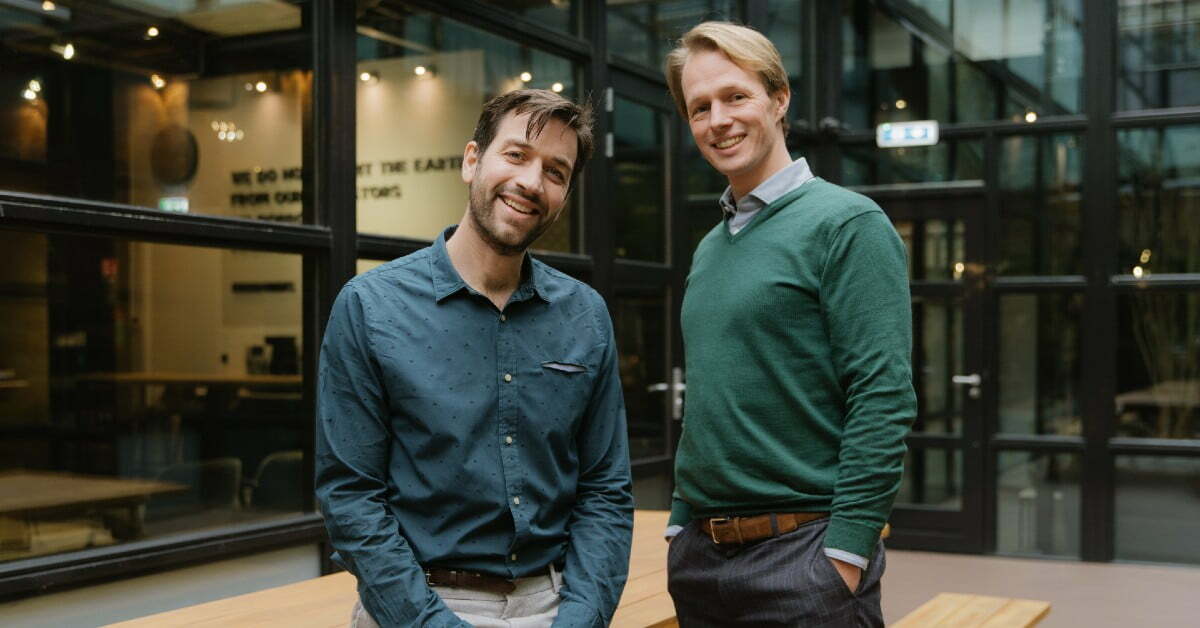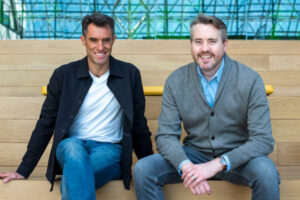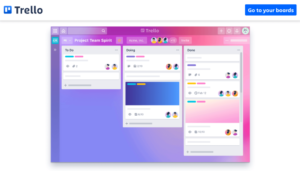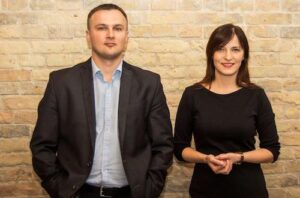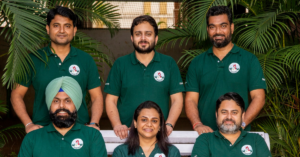Wouter Riedijk, CEO and Peter Madlener, CCO of Viktor | Image credit: Techleap.nl
“Engineers are the toughest crowd to sell to,” says Wouter Riedijk, co-founder of VIKTOR, as his partner and co-founder Peter Madlener nods in agreement. Engineers are intrinsically motivated to understand everything they come across to the last detail. So, when building their own tools for automation, they generally start building them from scratch, including the fundamental software development part.
That is why when VIKTOR, a Dutch scaleup based in Rotterdam, launched a low-code development platform for the engineering and construction industry, engineers started using it with a healthy dose of scepticism at first. But as soon as they discovered that the real challenge that they stand for is to build those tools based on their engineering expertise, that skepsis quickly turned around to great enthusiasm. Engineers discovered that with VIKTOR they can build professional applications within weeks that really make a difference within their own and their colleague’s work.
Get to know the amazing finalists here
Solving a real-world problem
Engineers are people that aim to fix problems. Both Wouter and Peter have a background in engineering and have faced this problem of not having the tools to automate things first-hand. Because of their own struggles with this, they decided to start VIKTOR. In fact, VIKTOR is the fourth start-up co-founded by the two.
Their experience of running the first three start-ups made them understand the real-world problems in engineering projects, such as the recurring lack of digitization. In their day-to-day life, engineers work on automating boring tasks and making tools for better insights, optimizations, and reporting. However, they often lack the frameworks that make it easier to do all of this.
Instead of relying on someone else to fix this gap, Wouter and Peter decided to do it themselves. Thus, VIKTOR was founded in 2017. As students at TU Delft, they studied Maritime Engineering and Aerospace Engineering and after co-founding three startups, Wouter says they decided it’s time to create a place that “enables engineers to gain full access to their potential”.
Wouter: “We help engineers to focus on their expertise, both in building engineering tooling as well as in using those tools.”
Accelerating digital transformation
VIKTOR was in essence founded when Wouter and Peter began their journey as entrepreneurs with their first startup in 2012. They founded an engineering company and two production companies and from day one, built a team of both engineers and software developers, applying their knowledge on the various projects. It made the team discover their real DNA. Peter says that DNA is “helping engineers build their own software” since they did the same for the three companies they previously started.
In 2017, the first of the production companies were sold to a partner. This was their first fundraising for VIKTOR, speeding up the development. This marked the start of the launch of the product in 2019. When in 2020 their second production company was sold to another partner, they again invested the money in building VIKTOR.
Five years and matching funding from InnovationQuarter later, VIKTOR is accelerating digital transformation in the engineering and construction industry. They are helping companies with using parametric and generative design methods to create better solutions and insights much faster, enhancing productivity, project control and better margins.
Web applications with Python
Wouter says, “When engineers go to university, they learn programming at the elementary level.” “The same is true for the construction industry.”
This became an opportunity for VIKTOR, knowing that engineers are already accustomed to basic programming; the only thing they still need is a tool to build their own web applications for automation, data analysis and data visualisation.
To accomplish that goal, Wouter and Peter turned to Python, the most popular programming language in the industry. It is relatively easy to learn for non-programmers, easy to use for engineers, and data scientists like to use it as well.
Low-code and no-code
Despite the fact that VIKTOR is currently a low-code Python development platform, Wouter and Peter already foresee adding no-code possibilities in the near future. Peter adds that their ambition is interlinked with different types of engineers. Some of them are motivated to use Python a lot in their work. There is also a part that does not like programming but does have the ambition to create tooling. That is why they are going to make it possible to link fundamental applications together in a no-code manner to automate entire workflows.
Agile working environment
The co-founders of VIKTOR also address a major opportunity for engineers, which is working in an agile environment. According to Peter, this process should be broadly adopted as soon as engineers come from the university. Peter: “It also has them think about how you get to a certain solution in a very structured way”.
To tackle this, Wouter recommends that engineers embrace “certain skills from programming that are good in a general sense.” Besides that, both co-founders see developing applications not as an individual task, but rather more as a team effort. The largest impact is made when an opportunity is identified and tackled by a team of people with different roles like sponsors, product owners, and engineers in the development role.
A product fit for all engineering and construction companies
Most start-ups struggle to define a go-to-market strategy for their product. However, Peter doesn’t blink an eye to say that VIKTOR “is an enterprise product fit for all engineering and construction companies”. This confidence stems from the fact that VIKTOR is already used by a majority of large contractors and engineering firms in the Netherlands. VIKTOR has a market share of more than 50 per cent there, and is also poised to gain market share around the world.
International expansion
The co-founders of VIKTOR are currently talking with a lot of companies in Australia, the US, the UK, the Nordics, Germany, and France. With this much traction, Peter says that VIKTOR starts the process to acquire investors for its Series A at the beginning of February and hopes to close within five months from then. Wouter: “A Series A funding will primarily be used to grow the commercial team, so we can focus on expanding internationally”.
This means that VIKTOR will be hiring more people across sales and growth marketing areas. The fund will also help them turn VIKTOR into an internationally scalable platform. “We have a very good product-market fit. We have almost zero churn and people are happy with what we offer,” Peter says.
Rise: A network for peers in the industry
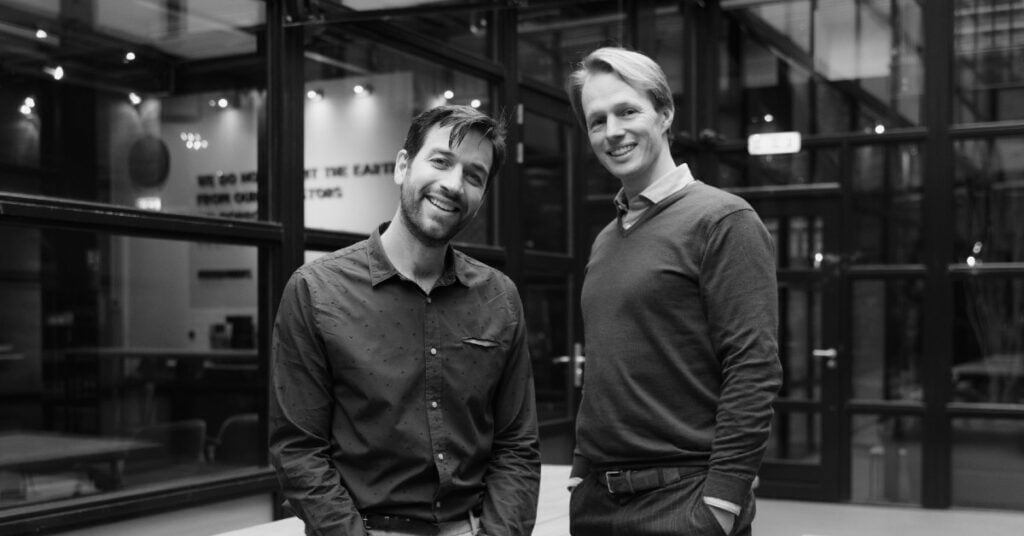
VIKTOR is also one of the nine scale-ups to participate in Techleap’s Batch #6. The co-founders explain that they joined knowing that they will start raising within the coming months. Peter: “We joined the programme because it is structured, focussing on topics that are important to scale-ups operating in the Netherlands, and aiming at international expansion”.
Wouter: “The Rise programme serves as a network for peers in the industry. We got valuable connections out of it and a lot of new insights that are going to help us scale faster, just like Silicon Valley tech companies”. Peter recollects the session by Derek Roos, co-founder of Mendix, and how his journey as a developer of an application development platform resonates with their own. “It was super interesting to become aware of the things that you will encounter when you’re going down this road,” Peter says.
Like many other entrepreneurs, the co-founders acknowledge they have learned a lot from their peers throughout the Rise programme and gained a good understanding of how some scale-ups face the same challenges despite having different business models. They now look back on the experience as good preparation for what the future will bring.
Aiming for the moon
According to Peter, the co-founders have always been “aiming for the moon”. However, that was quite difficult without being able to fully focus on building VIKTOR, as they used to be running multiple other companies in parallel. “This cost us a lot of time and energy and caused us to get distracted sometimes,” he adds. “In hindsight, it turned out okay. But the possibility of more focus would definitely have made it easier!”.
“In the early beginning of VIKTOR, we also tried to do business with large engineering firms. We approached them, while not yet fully understanding our own impact. The large enterprises saw us as a risk on a corporate level. Automation of engineering expertise in a sector that earns money by selling engineering expertise by the hour ís of course an important boardroom topic.”, Wouter says. “And when we came around to offer to help them with this, we were not yet mature enough, both at product and business level.”.
Currently, VIKTOR is still battling this image at some of the engineering firms and contractors in their home country. Fortunately, the facts suggest a different reality. To all the other early-stage start-ups, Peter leaves the advice: “It is better to do intensive research beforehand. You can only make one first impression. Be sure to make it count!”.
How partnering up with Salesforce helped him succeed!

